TLDR;
Yes, dogs can safely eat chia seeds—but only in moderation and never dry. Chia seeds must be soaked before feeding to prevent choking or digestive issues. Continue reading to understand how to prepare them properly, how much is safe, and when chia seeds might do more harm than good.
Can Dogs Eat Chia Seeds?
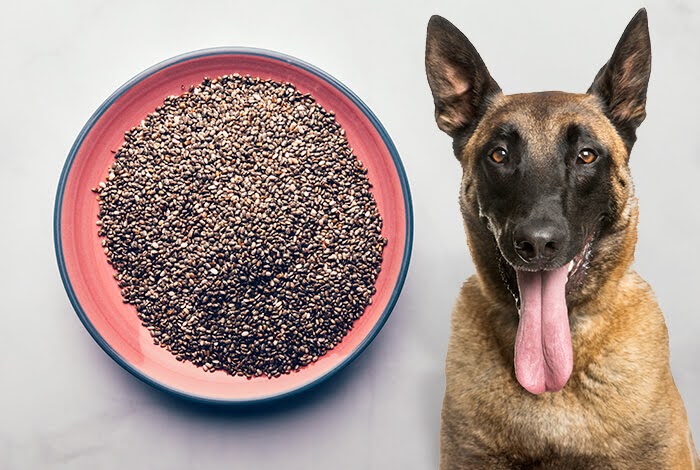
Yes, dogs can eat chia seeds—but there’s a big “but” here: they must be prepared correctly. Feeding chia seeds dry can cause bloating or even become a choking hazard. When used appropriately, chia seeds offer impressive nutritional benefits for dogs, which is why they’re showing up in more pet health discussions.
What Are Chia Seeds? And Why Are They Popular in Pet Nutrition?
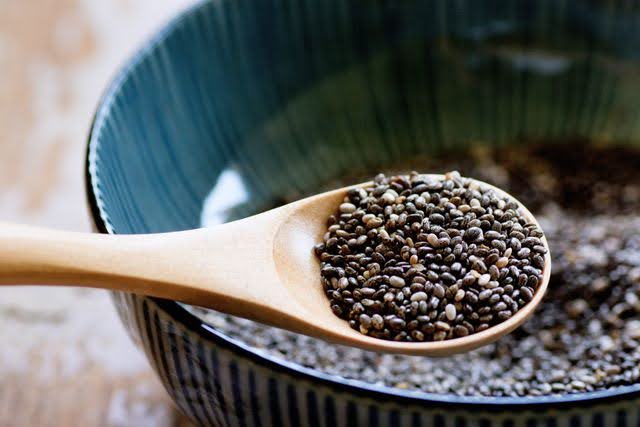
Chia seeds are tiny black or white seeds harvested from the Salvia hispanica plant, a relative of mint. Originally cultivated by ancient civilizations like the Aztecs, they’ve earned the label of a “superfood” thanks to their dense nutritional profile.
Why Are Chia Seeds Trending in Dog Diets?
- Rich in Omega-3 fatty acids, which support heart and brain health
- High in fiber, aiding digestion and gut health
- Loaded with antioxidants, helping fight inflammation
- Plant-based protein, beneficial for active or aging dogs
In the age of natural and holistic pet diets, chia seeds offer a plant-powered way to round out your dog’s nutrition. But that doesn’t mean they’re risk-free.
Nutritional Benefits of Chia Seeds for Dogs
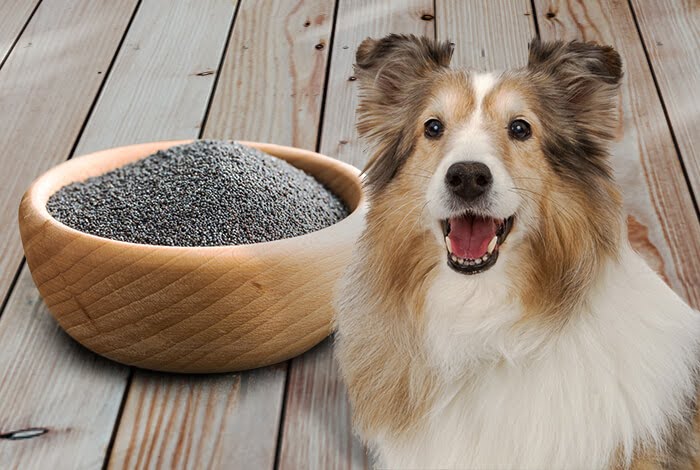
When properly prepared and fed in moderation, chia seeds can give your dog a natural boost in several areas of health.

Key Health Benefits
Improved Digestion and Gut Health
The high fiber content in soaked chia seeds can help regulate your dog’s bowel movements and reduce constipation.
Healthier Skin and Shinier Coat
Thanks to their omega-3s, chia seeds can soothe itchy skin and improve coat texture, particularly in dry or allergy-prone dogs.
Joint Support for Aging Dogs
Chia’s anti-inflammatory properties are especially useful for senior dogs struggling with arthritis or stiffness.
Stabilized Blood Sugar
The slow-release carbs and fiber in chia can help maintain stable blood sugar—great for overweight or diabetic dogs (under vet guidance).
The Hidden Risks: When Chia Seeds Can Be Harmful to Dogs
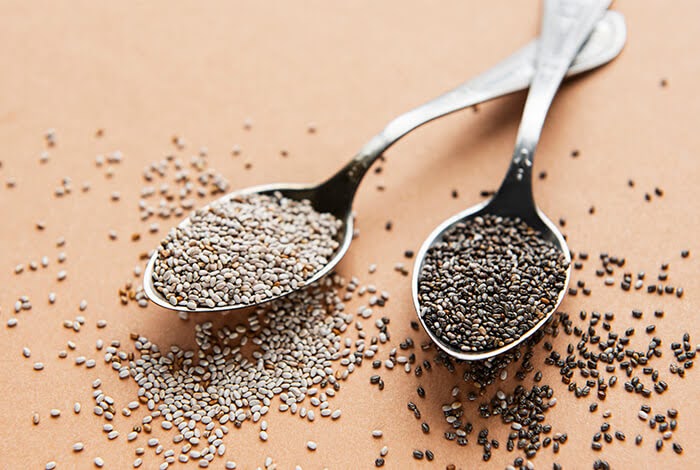
Here’s the catch: chia seeds expand rapidly when they come into contact with liquid. If consumed dry, they can swell in your dog’s throat or stomach, leading to choking, bloating, or digestive blockage.
When Chia Seeds Go Wrong: Side Effects and Red Flags
- Choking Hazard: Dry seeds can expand mid-swallow
- Stomach Bloating: Seeds absorb up to 12x their weight in liquid
- Diarrhea or Constipation: Sudden fiber increase shocks the digestive system
- Allergic Reactions: Rare, but possible—watch for hives, vomiting, or itching
- Drug Interactions: Chia may thin the blood—consult your vet if your dog is on medication
Important: Always soak chia seeds before feeding. If you’re unsure about your dog’s tolerance, start with a small amount and monitor for 24–48 hours.
How to Prepare Chia Seeds for Dogs (Safely)
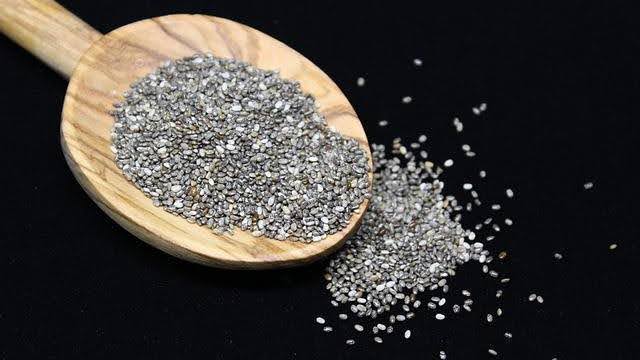
To safely feed chia seeds to your dog, you need to turn them into a chia gel.
Why Soaking Chia Seeds Matters
Dry chia seeds are like sponges. When they absorb liquid inside your dog’s body, it can lead to discomfort, bloating, or worse. Pre-soaking prevents this.
Step-by-Step: How to Make Chia Gel
- Use the right ratio: Mix 1 tablespoon of chia seeds with 1 cup of water.
- Let it sit: Soak for at least 30 minutes (overnight is best).
Store in fridge: Lasts 5–7 days in a sealed container.
Serving Size by Dog Weight

Best Ways to Feed Chia Seeds to Dogs
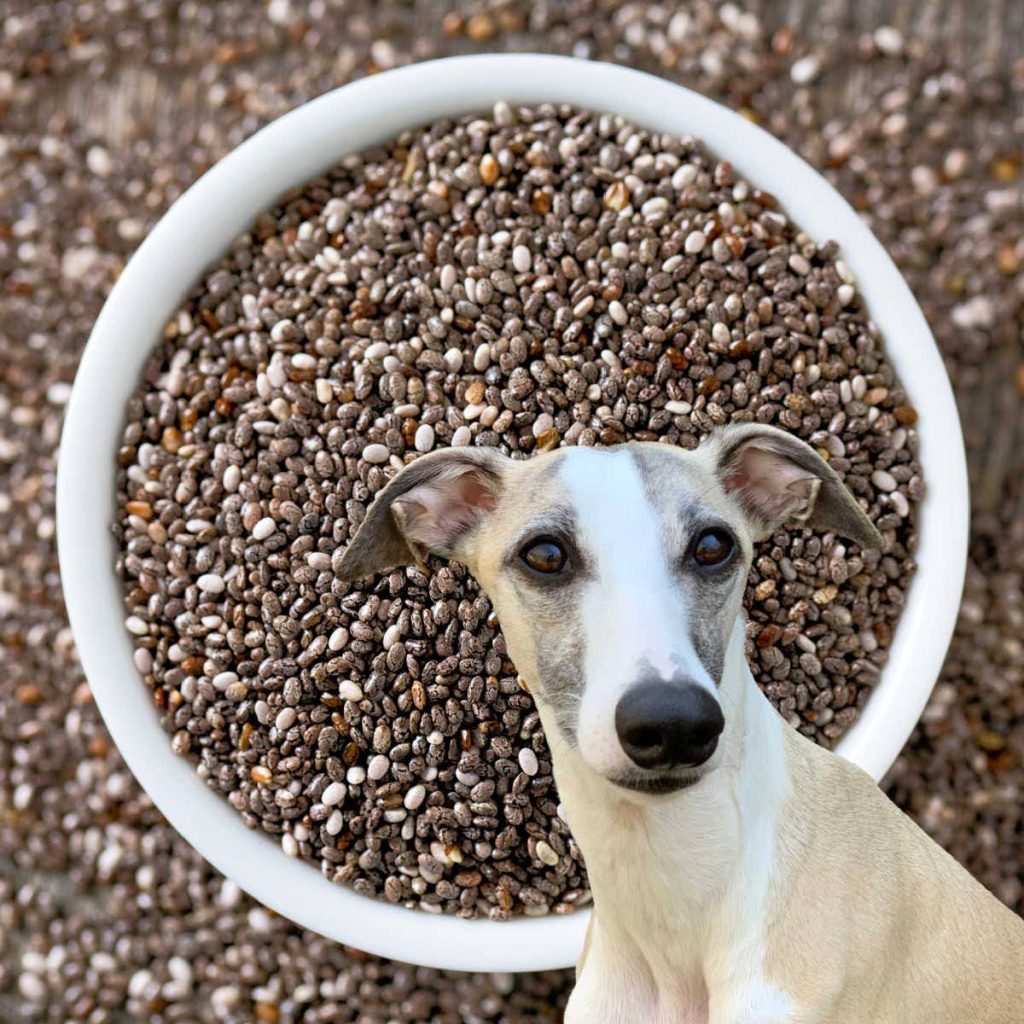
Once you’ve got your chia gel, it’s time to get creative! Here are a few simple ways to incorporate chia into your dog’s meals.
Sprinkle on Dry Food
Stir a tiny amount of chia gel into your dog’s kibble. It adds moisture and nutrients in one go.
Mix Into Wet Meals
Blend it with canned food or homemade meals. Dogs rarely notice the texture.
Frozen Chia Banana Bites (DIY Recipe)
Ingredients:
- 1 ripe banana
- 1 tbsp soaked chia gel
- 1 tbsp plain Greek yogurt
Instructions:
- Mash banana
- Mix in yogurt and chia gel
- Spoon into ice cube tray and freeze
- Serve 1 cube per day as a treat
Are Chia Seeds Safe for All Dog Breeds? Breed-Specific Considerations

Not all dogs react the same to dietary changes. Here’s what to know:
Puppies vs. Senior Dogs
- Puppies: Start with a pinch—chia can be too fiber-rich for immature systems
- Seniors: Can benefit from anti-inflammatory properties, but must avoid dry seeds
Small Breeds vs. Large Breeds
- Toy breeds like Chihuahuas are more susceptible to choking—watch dosage and texture
- Large breeds tolerate chia better but may need a higher serving size
Dogs with Sensitive Stomachs
- Dogs prone to IBS, pancreatitis, or diarrhea should only be fed chia under veterinary guidance
Introduce slowly and monitor for digestive upset
Chia Seeds vs Other Seeds: What’s Better for Dogs?

Vet Advice: Should You Talk to Your Veterinarian First?
Absolutely. Especially if your dog:
- Is on blood thinners
- Has a history of allergies
- Has a sensitive digestive system
- Is a puppy or senior dog
Your vet can advise you on whether chia seeds fit into your dog’s health plan. As with any supplement, chia seeds are an addition, not a replacement, for a complete diet.
Common Questions About Dogs and Chia Seeds
Can I give my dog chia seeds every day?
Yes, in small amounts and only if your dog tolerates them well. Monitor for digestive changes.
How many chia seeds can I give my dog?
Start with 1/4 tsp per 10 lbs of body weight (soaked), and adjust slowly.
What if my dog eats too many chia seeds?
Watch for vomiting, bloating, diarrhea. Contact your vet if symptoms persist.
Are there better alternatives to chia seeds?
Flax and hemp seeds are great alternatives, each offering unique benefits.
Should You Feed Your Dog Chia Seeds?
Yes—but only if done right. Chia seeds are packed with nutrients that can support your dog’s digestion, joints, and coat. But they can be dangerous when fed dry or in excess.
Start small. Soak thoroughly. And always check with your vet first.
At Careers Collectiv, we believe in empowering pet owners with the facts, not fluff. For more holistic nutrition tips, check out our other expert-backed resources.